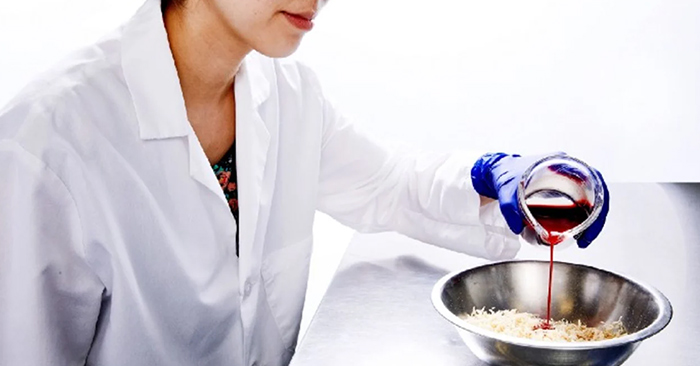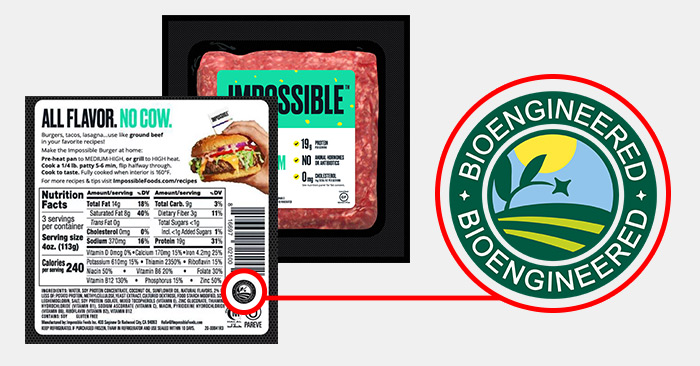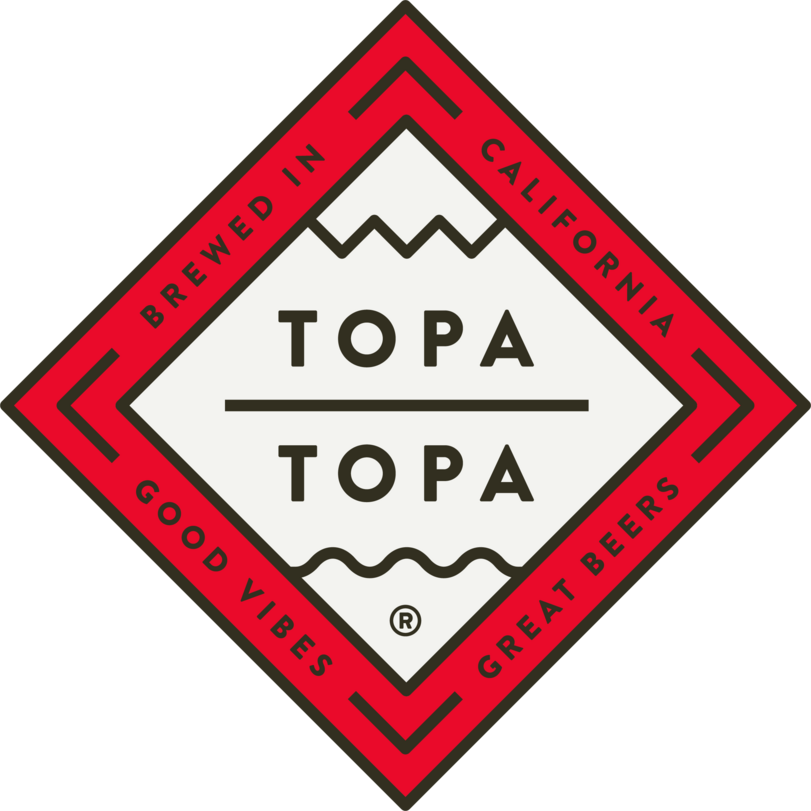Industry Members Question Safety of Synthetic Biology

It’s no secret that plant-based innovations in categories like meat and dairy have dominated headlines in the natural products industry in recent years, with companies swapping farms for fermentation tanks to create many of the ingredients used in vegan alternatives to products like burgers or ice cream. But the technology behind one of these production processes, synthetic biology, is relatively new to the industry, and it may blur the definition of a genetically modified organism (GMO) — causing some to question the safety of these new lab grown ingredients.
The growth of the number of companies that are starting to use synthetic biology is leading to more discussion around the safety of such processes, with organizations like The Non-GMO Project arguing they may need more regulation regarding consumer disclosures.
How Is Synthetic Biology Used in the Food Industry?
Synthetic biology (synbio) is the process of reengineering microorganisms using CRISPR (clustered regularly interspaced short palindromic repeats) technology and other gene-editing tools to re-create a naturally occurring product through fermentation, a process that is used across industries like medicine, manufacturing and agriculture.
Synbio products already commercialized include flavorings like vanilla, novel proteins, heme, collagen, egg white, sweeteners and CBD, and can be used in products like supplements, infant formulas, dairy products, protein powder, processed food and plant-based meat alternatives.
Still, the use of synbio to make ingredients is “not widely publicized or well known,” in the food industry, but is present in all levels of the supply chain, according to Adrienne Schofhauser, a spokesperson for The Non-GMO Project. That organization prohibits synbio products or ingredients from being certified non-GMOs and gaining access to the valuable Non-GMO Certified “butterfly” symbol.
Several notable companies in the natural products industry already are using synbio to produce ingredients used in food products. Impossible Foods produces heme, an iron-containing molecule found in animal meat that gives it its flavor and aroma when cooked, through synthetic biology rather than sourcing it from root nodules of soybean plants. The company adds a heme protein gene found in soybean roots to yeast cells, and then uses fermentation to produce heme in large concentrations.
Ingredient company Perfect Day also uses synbio to create animal-free whey protein through fermentation of microflora. The company supplies its protein for vegan ice cream lines for brands such as Nick’s, Graeter’s and Brave Robot.
Why Are Industry Groups Concerned?
The Non-GMO Project is currently tracking 400 biotech companies developing GMOs for use in food and supplements, Schofhauser said, a 250% increase since 2016. Because the use of synbio is not widely publicized, Schofhauser said it is hard to know how many of these companies are using synbio, but said many of the start-ups it is tracking “hope to sell to consumers who believe they are buying purely natural products.” However, it’s enough of a jump that it’s raised the group’s level of concern, prompting them to begin an advocacy campaign about its growing use.
The crux of the issue comes down to testing, according to the advocacy group. Some scientists, regulatory agencies and members of the natural products industry have raised concerns about the safety of synbio largely due to a lack of long-term studies around the safety of consuming products made using those processes.
Brands such as Perfect Day and Impossible foods have received Generally Recognized As Safe (GRAS) determinations from the FDA, but the Non-GMO Project, among others, continues to state concerns that suppliers of synbio-produced ingredients and products are marketing them to companies and consumers under the guise of being “nature identical” or “plant-based.”
“Synbio’s biggest threat to this industry is introducing unnatural GMOs into products that are marketed to brands and consumers as natural,” Hans Eisenbeis, director of marketing and communications at the Non-GMO Project, said. “Products made with synbio are unregulated, so brands may not know they’re incorporating them in their products.”
Products created using synbio are also not included in the National Bioengineered Food Disclosure Standard, implemented last year by the USDA, and thus are not subject to the same labeling regulations as food products containing other GMOs. Furthermore, Schofhauser pointed out that companies seeking GRAS determinations only must supply the FDA with information about the identity and properties of the ingredient, and the FDA does not conduct long-term studies on the ingredients themselves.
For this reason, grocery chain Natural Grocers no longer approves products with flavorings of unknown origin to be sold at its stores, said Alan Lewis, VP of advocacy and government affairs at the company and a Non-GMO Project board member. That’s “where synthetic biology marketers lurk in the shadows,” Lewis said, adding that products produced through synbio can also be misleading for consumers because of their sustainability callouts.
“The enticing promises made by investors in biotech food brands dazzle and allure, but behind those claims are hundreds of novel substances never before existent on Earth and certainly never used in our food,” Lewis said. “We return to describing the benefits of organic and regenerative growing practices that unequivocally can produce better, safer, more nutritious and abundant food while supporting farmers, animals, and rural communities [and] stabilizing the climate.”
There are also concerns about what synbio-produced ingredients might replace. The Non-GMO Project believes the adoption of synbio could have a large impact on farmers, particularly those in rural communities, as synbio substitutes are cheaper and require fewer resources to produce than their natural counterparts. The “proliferation of these products will further the global transfer of power and wealth, increasing the consolidation of the food supply system under the control of the few at the expense of the many,” said Schofhauser.

How Are Synbio Companies Responding?
Some brands believe they do not need to address the use of synbio at all. Perfect Day claims on its website that despite the use of genetic engineering in its production process, its animal-free protein does not contain GMOs because the microflora is filtered out of the final product, “leaving only pure protein.”
That statement shows the divide between government agencies like the USDA and FDA, which allow it, and private organizations like the Non-GMO Project, which considers food created through synbio to be genetically modified.
Perfect Day declined to comment on this story when reached by NOSH.
But others are more transparent, at least around the issue of GMOs. Impossible Foods, for example, said it communicates its use of genetically modified soy, and does not claim to be “all-natural,” a company spokesperson said when answering questions submitted by NOSH. It has been consistently straightforward about its use of genetic engineering, the spokesperson added, most notably through the use of the USDA Bioengineering logo on the packaging of its Impossible Burger.
Impossible Foods’ soy leghemoglobin – “heme” – received FDA GRAS determination in 2018 to be sold in its cooked form in food service. In 2019, the FDA authorized soy leghemoglobin as a color additive in ground beef analogue products, amending the agency’s color additive regulations to include it, in order for the products to be sold, in their uncooked form, directly to consumers.
The company’s defense of using synbio is two-pronged. First, a spokesperson said, its process of producing this heme is technically “no different” from the genetically modified products consumers have been eating for years, citing the genetically modified yeast used to make proteins for baking and brewing and the rennet (used to curdle milk) created from fermentation used in the cheesemaking process. Major regulating bodies including the FDA, World Health Organization, American Medical Association and American Association for the Advancement of Science have recognized genetically modified foods as safe.
Second, Impossible believes, and says studies support, the belief that its soy leghemoglobin is the same as any other form of heme.
“The heme in Impossible Foods’ products is identical to the heme humans have been safely consuming for hundreds of thousands of years in animal meat,” the spokesperson said. “It is safe for people of all populations and demographics to eat.”
Still not everyone agrees. The Center for Food Safety (CFS) this month filed a legal brief as part of a pending lawsuit with Ninth Circuit U.S. Court of Appeals challenging the FDA’s authorization of the heme, which could potentially result in its revocation. CFS Policy Director Jaydee Hanson said the organization is concerned the FDA “did not properly review the heme in the Impossible Burger” through long-term safety testing of its effect on human health.
“This sets a terrible precedent for the many other new genetically engineered ingredients derived from synthetic biology approaches,” Hanson said in a written statement to NOSH. “In short, the FDA failed to do its job to protect the public from new dangerous chemicals in our food.”
In a blog post on its website, Impossible Foods called CFS a “staunchly anti-GMO organization” whose goal is to “thwart progress toward a safer, healthier and more sustainable food system and restrict the choices available to farmers and consumers.” The company called the organization’s claims “patently false,” and the lawsuit against the FDA a “cynical disinformation campaign.”
When asked about the economic impacts of using synbio, Impossible Foods stated that there is currently no other method of industry for harvesting heme from soybean root nodules, so no jobs are lost as a result of its production methods. Furthermore, the company said, its processes have a much smaller environmental impact than industrial agriculture, as the process requires a fraction of the amount of land and water and releases less carbon into the atmosphere.
Impossible Foods faces a tougher battle for approval to sell its product in the EU, which has a stricter and often lengthier GMO authorization process. The company’s application for the use of soy leghemoglobin in the European market was filed September 2019, but is still under consideration. According to the European Commission, the risk assessment process is performed by the European Food Safety Agency’s GMO Panel, which considers potential threats to the environment, human health and animal safety, and is typically completed within six months of receiving the application. However, the process can take much longer if EFSA requests additional information from the applicant.
How Does This Impact Brands and Consumers?
Because there is a lack of clarity around labeling synbio ingredients, the Non-GMO Project has suggested that brands have an extra layer of responsibility — they need to be vigilant about their suppliers and supply chains and request specific information from them regarding how ingredients are being produced and sourced.
Retailers must also be more vigilant, Eisenbeis said, especially as many may not realize what synbio products are.
“Nobody in the natural products industry wants these GMOs in their products or on their store shelves. Retailers and brands can’t afford to lose that consumer trust,” he said.
Natural products shoppers may be more cognizant of this issue. Natural Grocers shoppers, Lewis said, have “fully embraced the need to eliminate GMO ingredients from the food supply chain.”
“Our customers know that for any potential perceived benefit for these technologies, the known and unknown negative consequences are not worth the risk,” he said. “Regulations may or may not catch up with us. We certainly are not depending on them to know what’s right.”
But the question remains if the majority of consumers even care if brands use this process. According to the Non-GMO Project, the answer is yes, particularly if brands are targeting natural shoppers. 85% of natural and organic shoppers are more likely to buy products with the Verified Butterfly seal, Schofhauser said, and 88% are willing to pay a premium for them.
Still, the group claims that many consumers aren’t yet fully aware of synbio because brands do not clearly call it out on packaging. So as groups like the Non-GMO Project push for further disclosures, there could be more backlash from shoppers, prompting companies to need to adjust their ingredients.
However, it’s not clear that brands will even need to be concerned. According to a survey conducted by The New Hope Network last month, consumers may not be as opposed to synthetic biology as some groups may think. The survey, which garnered responses from 1,000 consumers, including 360 natural channel shoppers, found that 71% of natural shoppers are willing to buy products containing ingredients made through synbio, while 56% believe product labels should indicate if the product contains a synbio ingredient. So while shoppers may be comfortable with the use of synbio, many still do value transparency, a concept that Impossible Foods said it supports.
“We believe people deserve to understand their food and make informed choices,” the company said.
















